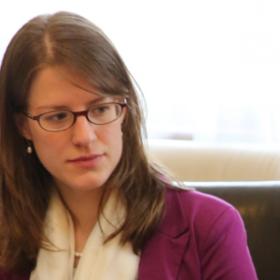
Afghanistan Reconnected: Regional Economic Security Beyond 2014
EWI's latest report—a culmination of two years work—illustrates how regional collaboration would strengthen economic, political and social ties between Central Asia and South Asia and contribute to a more stable Afghanistan in 2014 and beyond.
Afghanistan’s economic development is at a critical and exciting juncture as international troops withdraw at the end of this year, and the country elects a new president. The EastWest Institute Brussels Center proudly presents Afghanistan Reconnected: Regional Economic Security Beyond 2014, which focuses on the economic opportunities of the country’s transition from a security and aid-dependent economy to one reconnected to the region. This report’s findings are the culmination of four meetings organized by EWI, which occurred in Istanbul, Islamabad, New Delhi and Berlin, over the last two years, on cross-border economic challenges and opportunities. These engagements enabled leaders from Afghanistan, Pakistan, India, Turkmenistan, Iran, China, the European Union, the United States and other nations to exchange ideas, identify opportunities and clarify obstacles to growth.
Afghanistan’s considerable prospects exist in agriculture, in mining and as an energy transit hub at the crossroads of Asia, through which resources can pass to the fast-growing markets of East and South Asia.
“Afghanistan has billions of dollars of mineral resources, such as iron, copper, gold, rare earths, lithium, which can be an important foundation for economic development,” EWI’s Chief Operating Officer James Creighton said. “The prospects for hydrocarbon industry development, mining sector growth and trade and transport expansion are recognized as sources of tremendous potential,” Creighton added.
He also stressed that the prospects for business development in these sectors combined with an energetic, increasingly educated and young population offer a climate for positive change.
“We wanted to generate knowledge and interest in the region in Afghanistan’s economic potential and highlight the win-win potential,” Ambassador Dr. Beate Maeder-Metcalf, EWI vice president and director for Regional Security, said.
EWI engaged high-level stakeholders—decision-makers from the government and the business sectors—to revitalize economic cooperation within the region. The World Bank and the European External Action Service participated at these meetings, stressing the transformative potential of this opportunity, including access to new markets, enhanced energy security and greatly increased job opportunities for the entire region.
Afghanistan Reconnected illustrates how this regional cooperation and collaboration would strengthen economic, political and social ties between Central Asia and South Asia and contribute to a more stable Afghanistan for years to come.


